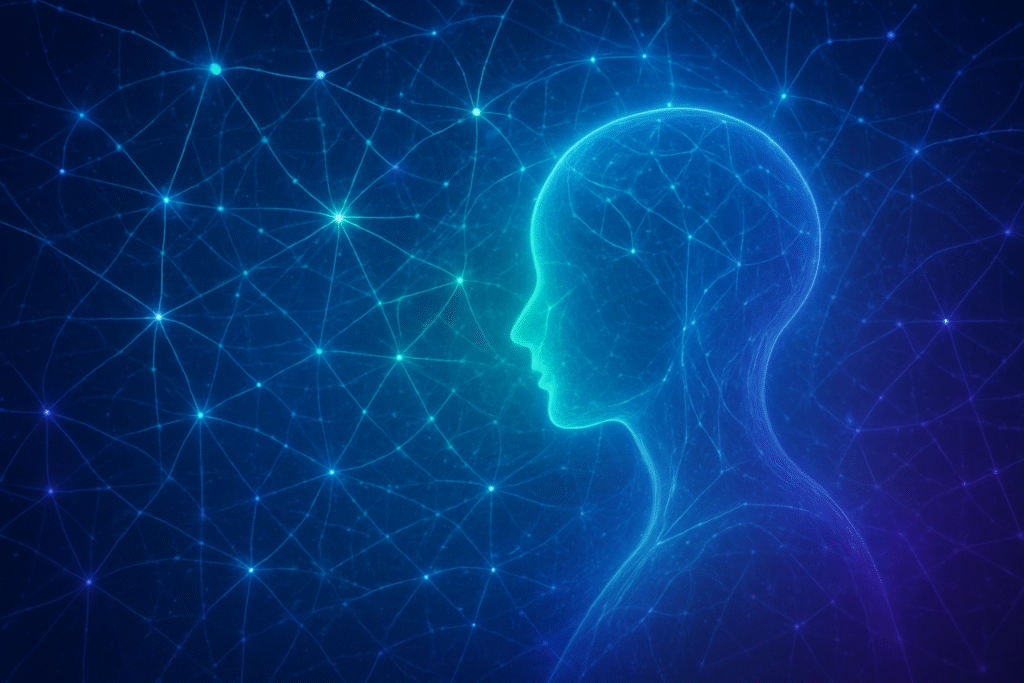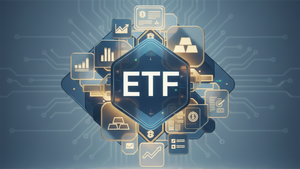
In an era defined by technological acceleration, the integration of Artificial Intelligence (AI) into nearly every facet of human endeavor continues to reshape industries and services. One of the most sensitive yet promising applications lies within mental health care, where AI chatbots are emerging not as replacements for human therapists, but as powerful allies designed to extend support, enhance accessibility, and streamline clinical workflows. As of November 17, 2025, the discourse surrounding AI in mental health has firmly shifted from apprehension about substitution to an embrace of augmentation, recognizing the profound potential for these digital companions to alleviate the global mental health crisis.
The immediate significance of this development is undeniable. With mental health challenges on the rise worldwide and a persistent shortage of qualified professionals, AI chatbots offer a scalable, always-on resource. They provide a crucial first line of support, offering psychoeducation, mood tracking, and coping strategies between traditional therapy sessions. This symbiotic relationship between human expertise and artificial intelligence is poised to revolutionize how mental health care is delivered, making it more accessible, efficient, and ultimately, more effective for those in need.
The Technical Tapestry: Weaving AI into Therapeutic Practice
At the heart of the modern AI chatbot's capability to assist mental health therapists lies a sophisticated blend of Natural Language Processing (NLP) and machine learning (ML) algorithms. These advanced technologies enable chatbots to understand, process, and respond to human language with remarkable nuance, facilitating complex and context-aware conversations that were once the exclusive domain of human interaction. Unlike their rudimentary predecessors, these AI systems are not merely pattern-matching programs; they are designed to generate original content, engage in dynamic dialogue, and provide personalized support.
Many contemporary mental health chatbots are meticulously engineered around established psychological frameworks such as Cognitive Behavioral Therapy (CBT), Dialectical Behavior Therapy (DBT), and Acceptance and Commitment Therapy (ACT). They deliver therapeutic interventions through conversational interfaces, guiding users through exercises, helping to identify and challenge negative thought patterns, and reinforcing healthy coping mechanisms. This grounding in evidence-based practices is a critical differentiator from earlier, less structured conversational agents. Furthermore, their capacity for personalization is a significant technical leap; by analyzing conversation histories and user data, these chatbots can adapt their interactions, offering tailored insights, mood tracking, and reflective journaling prompts that evolve with the individual's journey.
This generation of AI chatbots represents a profound departure from previous technological approaches in mental health. Early systems, like ELIZA in 1966, relied on simple keyword recognition and rule-based responses, often just rephrasing user statements as questions. The "expert systems" of the 1980s, such as MYCIN, provided decision support for clinicians but lacked direct patient interaction. Even computerized CBT programs from the late 20th and early 21st centuries, while effective, often presented fixed content and lacked the dynamic, adaptive, and scalable personalization offered by today's AI. Modern chatbots can interact with thousands of users simultaneously, providing 24/7 accessibility that breaks down geographical and financial barriers, a feat impossible for traditional therapy or static software. Some advanced platforms even employ "dual-agent systems," where a primary chat agent handles real-time dialogue while an assistant agent analyzes conversations to provide actionable intelligence to the human therapist, thus streamlining clinical workflows.
Initial reactions from the AI research community and industry experts are a blend of profound optimism and cautious vigilance. There's widespread excitement about AI's potential to dramatically expand access to mental health support, particularly for underserved populations, and its utility in early intervention by identifying at-risk individuals. Companies like Woebot Health and Wysa are at the forefront, developing clinically validated AI tools that demonstrate efficacy in reducing symptoms of depression and anxiety, often leveraging CBT and DBT principles. However, experts consistently highlight the AI's inherent limitations, particularly its inability to fully replicate genuine human empathy, emotional connection, and the nuanced understanding crucial for managing severe mental illnesses or complex, life-threatening emotional needs. Concerns regarding misinformation, algorithmic bias, data privacy, and the critical need for robust regulatory frameworks are paramount, with organizations like the American Psychological Association (APA) advocating for stringent safeguards and ethical guidelines to ensure responsible innovation and protect vulnerable individuals. The consensus leans towards a hybrid future, where AI chatbots serve as powerful complements to, rather than substitutes for, the irreplaceable expertise of human mental health professionals.
Reshaping the Landscape: Impact on the AI and Mental Health Industries
The advent of sophisticated AI chatbots is profoundly reshaping the mental health technology industry, creating a dynamic ecosystem where innovative startups, established tech giants, and even cloud service providers are finding new avenues for growth and competition. This shift is driven by the urgent global demand for accessible and affordable mental health care, which AI is uniquely positioned to address.
Dedicated AI mental health startups are leading the charge, developing specialized platforms that offer personalized and often clinically validated support. Companies like Woebot Health, a pioneer in AI-powered conversational therapy based on evidence-based approaches, and Wysa, which combines an AI chatbot with self-help tools and human therapist support, are demonstrating the efficacy and scalability of these solutions. Others, such as Limbic, a UK-based startup that achieved UKCA Class IIa medical device status for its conversational AI, are setting new standards for clinical validation and integration into national health services, currently used in 33% of the UK's NHS Talking Therapies services. Similarly, Kintsugi focuses on voice-based mental health insights, using generative AI to detect signs of depression and anxiety from speech, while Spring Health and Lyra Health utilize AI to tailor treatments and connect individuals with appropriate care within employer wellness programs. Even Talkspace, a prominent online therapy provider, integrates AI to analyze linguistic patterns for real-time risk assessment and therapist alerts.
Beyond the specialized startups, major tech giants are benefiting through their foundational AI technologies and cloud services. Developers of large language models (LLMs) such as OpenAI (NASDAQ: MSFT), Google (NASDAQ: GOOGL), and Microsoft (NASDAQ: MSFT) are seeing their general-purpose AI increasingly leveraged for emotional support, even if not explicitly designed for clinical mental health. However, the American Psychological Association (APA) strongly cautions against using these general-purpose chatbots as substitutes for qualified care due to potential risks. Furthermore, cloud service providers like Amazon Web Services (AWS) (NASDAQ: AMZN), Google Cloud (NASDAQ: GOOGL), and Microsoft Azure (NASDAQ: MSFT) provide the essential infrastructure, machine learning tools, and secure data storage that underpin the development and scaling of these mental health AI applications.
The competitive implications are significant. AI chatbots are disrupting traditional mental health services by offering increased accessibility and affordability, providing 24/7 support that can reach underserved populations and often at a fraction of the cost of in-person therapy. This directly challenges existing models and necessitates a re-evaluation of service delivery. The ability of AI to provide data-driven personalization also disrupts "one-size-fits-all" approaches, leading to more precise and sensitive interactions. However, the market faces the critical challenge of regulation; the potential for unregulated or general-purpose AI to provide harmful advice underscores the need for clinical validation and ethical oversight, creating a clear differentiator for responsible, clinically-backed solutions. The market for mental health chatbots is projected for substantial growth, attracting significant investment and fostering intense competition, with strategies focusing on clinical validation, integration with healthcare systems, specialization, hybrid human-AI models, robust data privacy, and continuous innovation in AI capabilities.
A Broader Lens: AI's Place in the Mental Health Ecosystem
The integration of AI chatbots into mental health services represents more than just a technological upgrade; it signifies a pivotal moment in the broader AI landscape, reflecting a continuous evolution from rudimentary computational tools to sophisticated, generative conversational agents. This journey began with early experiments like ELIZA in the 1960s, which mimicked human conversation, progressing through expert systems in the 1980s that aided clinical decision-making, and computerized cognitive behavioral therapy (CCBT) programs in the 1990s and 2000s that delivered structured digital interventions. Today, the rapid adoption of large language models (LLMs) such as ChatGPT (NASDAQ: MSFT) and Gemini (NASDAQ: GOOGL) marks a qualitative leap, offering unprecedented conversational capabilities that are both a marvel and a challenge in the sensitive domain of mental health.
The societal impacts of this shift are multifaceted. On the positive side, AI chatbots promise unparalleled accessibility and affordability, offering 24/7 support that can bridge the critical gap in mental health care, particularly for underserved populations in remote areas. They can help reduce the stigma associated with seeking help, providing a lower-pressure, anonymous entry point into care. Furthermore, AI can significantly augment the work of human therapists by assisting with administrative tasks, early screening, diagnosis support, and continuous patient monitoring, thereby alleviating clinician burnout. However, the societal risks are equally profound. Concerns about psychological dependency, where users develop an over-reliance on AI, potentially leading to increased loneliness or exacerbation of symptoms, are growing. Documented cases where AI chatbots have inadvertently encouraged self-harm or delusional thinking underscore the critical limitations of AI in replicating genuine human empathy and understanding, which are foundational to effective therapy.
Ethical considerations are at the forefront of this discourse. A major concern revolves around accountability and the duty of care. Unlike licensed human therapists who are bound by stringent professional codes and regulatory bodies, commercially available AI chatbots often operate in a regulatory vacuum, making it difficult to assign liability when harmful advice is provided. The need for informed consent and transparency is paramount; users must be fully aware they are interacting with an AI, not a human, a principle that some states, like New York and Utah, are beginning to codify into law. The potential for emotional manipulation, given AI's ability to forge human-like relationships, also raises red flags, especially for vulnerable individuals. States like Illinois and Nevada have even begun to restrict AI's role in mental health to administrative and supplementary support, explicitly prohibiting its use for therapeutic decision-making without licensed professional oversight.
Data privacy and algorithmic bias represent additional, significant concerns. Mental health apps and AI chatbots collect highly sensitive personal information, yet they often fall outside the strict privacy regulations, such as HIPAA, that govern traditional healthcare providers. This creates risks of data misuse, sharing with third parties, and potential for discrimination or stigmatization if data is leaked. Moreover, AI systems trained on vast, uncurated datasets can perpetuate and amplify existing societal biases. This can manifest as cultural or gender bias, leading to misinterpretations of distress, providing culturally inappropriate advice, or even exhibiting increased stigma towards certain conditions or populations, resulting in unequal and potentially harmful outcomes for diverse user groups.
Compared to previous AI milestones in healthcare, current LLM-based chatbots represent a qualitative leap in conversational fluency and adaptability. While earlier systems were limited by scripted responses or structured data, modern AI can generate novel, contextually relevant dialogue, creating a more "human-like" interaction. However, this advanced capability introduces a new set of risks, particularly regarding the generation of unvalidated or harmful advice due to their reliance on vast, sometimes uncurated, datasets—a challenge less prevalent with the more controlled, rule-based systems of the past. The current challenge is to harness the sophisticated capabilities of modern AI responsibly, addressing the complex ethical and safety considerations that were not as pronounced with earlier, less autonomous AI applications.
The Road Ahead: Charting the Future of AI in Mental Health
The trajectory of AI chatbots in mental health points towards a future characterized by both continuous innovation and a deepening understanding of their optimal role within a human-centric care model. In the near term, we can anticipate further enhancements in their core functionalities, solidifying their position as accessible and convenient support tools. Chatbots will continue to refine their ability to provide evidence-based support, drawing from frameworks like CBT and DBT, and showing even more encouraging results in symptom reduction for anxiety and depression. Their capabilities in symptom screening, triage, mood tracking, and early intervention will become more sophisticated, offering real-time insights and nudges towards positive behavioral changes or professional help. For practitioners, AI tools will increasingly streamline administrative burdens, from summarizing session notes to drafting research, and even serving as training aids for aspiring therapists.
Looking further ahead, the long-term vision for AI chatbots in mental health is one of profound integration and advanced personalization. Experts largely agree that AI will not replace human therapists but will instead become an indispensable complement within hybrid, stepped-care models. This means AI handling routine support and psychoeducation, thereby freeing human therapists to focus on complex cases requiring deep empathy and nuanced understanding. Advanced machine learning algorithms are expected to leverage extensive patient data—including genetic predispositions, past treatment responses, and real-time physiological indicators—to create highly personalized treatment plans. Future AI models will also strive for more sophisticated emotional understanding, moving beyond simulated empathy to a more nuanced replication of human-like conversational abilities, potentially even aiding in proactive detection of mental health distress through subtle linguistic and behavioral patterns.
The horizon of potential applications and use cases is vast. Beyond current self-help and wellness apps, AI chatbots will serve as powerful adjunctive therapy tools, offering continuous support and homework between in-person sessions to intensify treatment for conditions like chronic depression. While crisis support remains a sensitive area, advancements are being made with critical safeguards and human clinician oversight. AI will also play a significant role in patient education, health promotion, and bridging treatment gaps for underserved populations, offering affordable and anonymous access to specialized interventions for conditions ranging from anxiety and substance use disorders to eating disorders.
However, realizing this transformative potential hinges on addressing several critical challenges. Ethical concerns surrounding data privacy and security are paramount; AI systems collect vast amounts of sensitive personal data, often outside the strict regulations of traditional healthcare, necessitating robust safeguards and transparent policies. Algorithmic bias, inherent in training data, must be diligently mitigated to prevent misdiagnoses or unequal treatment outcomes, particularly for marginalized populations. Clinical limitations, such as AI's struggle with genuine empathy, its potential to provide misguided or even dangerous advice (e.g., in crisis situations), and the risk of fostering emotional dependence, require ongoing research and careful design. Finally, the rapid pace of AI development continues to outpace regulatory frameworks, creating a pressing need for clear guidelines, accountability mechanisms, and rigorous clinical validation, especially for large language model-based tools.
Experts overwhelmingly predict that AI chatbots will become an integral part of mental health care, primarily in a complementary role. The future emphasizes "human + machine" synergy, where AI augments human capabilities, making practitioners more effective. This necessitates increased integration with human professionals, ensuring AI recommendations are reviewed, and clinicians proactively discuss chatbot use with patients. A strong call for rigorous clinical efficacy trials for AI chatbots, particularly LLMs, is a consensus, moving beyond foundational testing to real-world validation. The development of robust ethical frameworks and regulatory alignment will be crucial to protect patient privacy, mitigate bias, and establish accountability. The overarching goal is to harness AI's power responsibly, maintaining the irreplaceable human element at the core of mental health support.
A Symbiotic Future: AI and the Enduring Human Element in Mental Health
The journey of AI chatbots in mental health, from rudimentary conversational programs like ELIZA in the 1960s to today's sophisticated large language models (LLMs) from companies like OpenAI (NASDAQ: MSFT) and Google (NASDAQ: GOOGL), marks a profound evolution in AI history. This development is not merely incremental; it represents a transformative shift towards applying AI to complex, interpersonal challenges, redefining our perceptions of technology's role in well-being. The key takeaway is clear: AI chatbots are emerging as indispensable support tools, designed to augment, not supplant, the irreplaceable expertise and empathy of human mental health professionals.
The significance of this development lies in its potential to address the escalating global mental health crisis by dramatically enhancing accessibility and affordability of care. AI-powered tools offer 24/7 support, facilitate early detection and monitoring, aid in creating personalized treatment plans, and significantly streamline administrative tasks for clinicians. Companies like Woebot Health and Wysa exemplify this potential, offering clinically validated, evidence-based support that can reach millions. However, this progress is tempered by critical challenges. The risks of ineffectiveness compared to human therapists, algorithmic bias, lack of transparency, and the potential for psychological dependence are significant. Instances of chatbots providing dangerous or inappropriate advice, particularly concerning self-harm, underscore the ethical minefield that must be carefully navigated. The American Psychological Association (APA) and other professional bodies are unequivocal: consumer AI chatbots are not substitutes for professional mental health care.
In the long term, AI is poised to profoundly reshape mental healthcare by expanding access, improving diagnostic precision, and enabling more personalized and preventative strategies on a global scale. The consensus among experts is that AI will integrate into "stepped care models," handling basic support and psychoeducation, thereby freeing human therapists for more complex cases requiring deep empathy and nuanced judgment. The challenge lies in effectively navigating the ethical landscape—safeguarding sensitive patient data, mitigating bias, ensuring transparency, and preventing the erosion of essential human cognitive and social skills. The future demands continuous interdisciplinary collaboration between technologists, mental health professionals, and ethicists to ensure AI developments are grounded in clinical realities and serve to enhance human well-being responsibly.
As we move into the coming weeks and months, several key areas will warrant close attention. Regulatory developments will be paramount, particularly following discussions from bodies like the U.S. Food and Drug Administration (FDA) regarding generative AI-enabled digital mental health medical devices. Watch for federal guidelines and the ripple effects of state-level legislation, such as those in New York, Utah, Nevada, and Illinois, which mandate clear AI disclosures, prohibit independent therapeutic decision-making by AI, and impose strict data privacy protections. Expect more legal challenges and liability discussions as civil litigation tests the boundaries of responsibility for harm caused by AI chatbots. The urgent call for rigorous scientific research and validation of AI chatbot efficacy and safety, especially for LLMs, will intensify, pushing for more randomized clinical trials and longitudinal studies. Professional bodies will continue to issue guidelines and training for clinicians, emphasizing AI's capabilities, limitations, and ethical use. Finally, anticipate further technological advancements in "emotionally intelligent" AI and predictive applications, but crucially, these must be accompanied by increased efforts to build in ethical safeguards from the design phase, particularly for detecting and responding to suicidal ideation or self-harm. The immediate future of AI in mental health will be a critical balancing act: harnessing its immense potential while establishing robust regulatory frameworks, rigorous scientific validation, and ethical guidelines to protect vulnerable users and ensure responsible, human-centered innovation.
This content is intended for informational purposes only and represents analysis of current AI developments.
TokenRing AI delivers enterprise-grade solutions for multi-agent AI workflow orchestration, AI-powered development tools, and seamless remote collaboration platforms.
For more information, visit https://www.tokenring.ai/.




